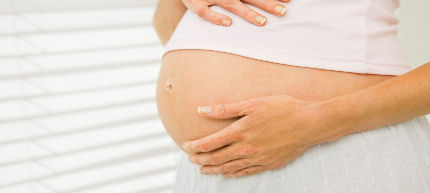Scientists at the University of Liverpool have found that there is little evidence of the effectiveness of non-drug approaches for relieving labour pains compared to drug-based approaches.
Many different approaches are used to relieve pain in labour, but not all are supported by strong evidence. The review by Cochrane researchers brought together the results of 15 previous Cochrane reviews and three non-Cochrane reviews, including data from 310 trials in total.
To try to distinguish between well-supported and less well-supported pain relief approaches, the researchers decided to split interventions into three categories; ‘what works’, ‘maybe works’ and ‘not enough evidence’.
Painkilling drugs given by epidural, combined spinal epidural (CSE) and inhalation fell under the category, ‘what works’. This category had the best evidence, but also had more adverse effects including nausea and vomiting caused by inhaled painkillers and hypotension due to epidural.
The authors classed immersion in water, relaxation, acupuncture, massage and local anaesthetic nerve blocks or non-opioid drugs as ‘may work’. Although less well-supported by clinical evidence, these interventions were better tolerated, with women reporting improved satisfaction with pain relief for all except massage.
The least supported or ‘insufficient evidence’ group of pain relief interventions included hypnosis, biofeedback, sterile water injection, aromatherapy, transcutaneous electrical nerve stimulation (TENS) and injected or intravenous opioids.
Lead author of the study, Professor James Neilson from the Department of Women’s and Children’s Health, said: “Women should be told about the benefits and adverse effects of different pain relief methods, but should feel free to choose whatever form of pain relief they feel would help them most during labour. It remains important to tailor approaches to women’s individual needs and circumstances.”
The study calls for more research on the non-drug interventions that researchers grouped into the second and third categories. Although generally safe, for most of these interventions, evidence was based on just one or two trials.
Fewer than 1,000 women have taken part in trials for each of hypnosis, biofeedback, sterile water injection, aromatherapy and massage. TENS is popular and widely recommended by midwives but not by the National Institute for Health and Clinical Excellence.
“The discordance of views between women, clinicians and guidelines reflects a poor evidence base and the uncertainty should be resolved by a definitive clinical trial,” said Professor Neilson.
